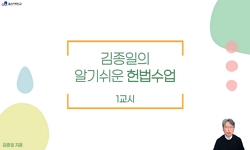저작권법 제104조 제1항은 직접적으로 저작권을 침해를 하는 것은 아니지만 저작권 침해를 사전에 줄이기 위해 ‘이용자의 저작권 침해행위가 상대적으로 많이 발생할 가능성이 높은 유형’...
http://chineseinput.net/에서 pinyin(병음)방식으로 중국어를 변환할 수 있습니다.
변환된 중국어를 복사하여 사용하시면 됩니다.
- 中文 을 입력하시려면 zhongwen을 입력하시고 space를누르시면됩니다.
- 北京 을 입력하시려면 beijing을 입력하시고 space를 누르시면 됩니다.

저작권법 제104조 등 위헌소원 결정(2009헌바56)에 관한 비판적 고찰 = Critical Contemplation on Section 104 of the Copyright Act
한글로보기https://www.riss.kr/link?id=A102899289
- 저자
- 발행기관
- 학술지명
- 권호사항
-
발행연도
2011
-
작성언어
-
-
주제어
저작권 ; 온라인서비스제공자 ; 기술적 조치 ; P2P ; 헌법 ; Copyright ; Online Service Provider ; Technical Measure ; P2P ; Constitution
-
KDC
366
-
등재정보
KCI등재
-
자료형태
학술저널
- 발행기관 URL
-
수록면
69-96(28쪽)
- 제공처
-
0
상세조회 -
0
다운로드
부가정보
국문 초록 (Abstract)
청이 있는 경우 당해 저작물의 불법 전송을 차단하는 기술적 조치를 할 의무를 부과하고, 이를 위반할 경우 과태료 처분을 할 수 있도록 하는 것을 내용으로 신설되었다. 그런데 저작권법 제104조의 규정을 추상적으로 기술하여 ‘누가 의무자가 되는지,
그 의무의 조건과 내용은 무엇인지, 그 의무의 한계는 어디까지인지’ 등과 관련하여 논란이 계속되어 왔다. 최근 개별 이용자들의 각 컴퓨터가 기존 서버의 역할을 겸하도록 함으로써 서버를 통하지 않고도 이용자들이 자신의 컴퓨터 내 하드디스크에 저장된 파일이나 자료 등을 상호간에 직접 주고받아 공유할 수 있도록 하는 P2P 서비스와 웹하드 서비스 등이 주로 저작권 침해행위에 이용됨에 따라, 저작권법 제104조는 비교법적으로 유례가 없는 ‘통지 후 필터링 의무’를 온라인서비스제공자에게 부과한 점은 저작권 보호를 위한 새로운 입법적 시도로 평가 받을 수 있다. ‘권리자의 요청’ 및 ‘필요한 조치’ 등의 기준과 범위가 모호함에 따라 사실상 특수한 유형의 온라인서비스제공자에게 사실상 일반적 사전 감시⋅검색의무를 부여한 것으로, 이는 온라인서비스제공자의 책임제한을 명시한 저작권법 규정의 입법 취지에 반한다고 볼 수 있다. 본 연구에서는 이용자에 의한 저작권 침해를 사전에 방지 또는 감소시키고자 신설되었음에도 불구하고 계속 제기되는 저작권법 제104조 및 그 하위법령에 대한 헌법상 쟁점을 헌법재판소 결정을 중심으로 살펴보고, 온라인서비스제공자의 책임 및 제한에 관한 바람직한 정책적 방향을 제시하고자 한다.
저작권법 제104조 제1항은 직접적으로 저작권을 침해를 하는 것은 아니지만 저작권 침해를 사전에 줄이기 위해 ‘이용자의 저작권 침해행위가 상대적으로 많이 발생할 가능성이 높은 유형’의 온라인 서비스를 제공하는 사업자 하지만, 에게 권리자의 요
청이 있는 경우 당해 저작물의 불법 전송을 차단하는 기술적 조치를 할 의무를 부과하고, 이를 위반할 경우 과태료 처분을 할 수 있도록 하는 것을 내용으로 신설되었다. 그런데 저작권법 제104조의 규정을 추상적으로 기술하여 ‘누가 의무자가 되는지,
그 의무의 조건과 내용은 무엇인지, 그 의무의 한계는 어디까지인지’ 등과 관련하여 논란이 계속되어 왔다. 최근 개별 이용자들의 각 컴퓨터가 기존 서버의 역할을 겸하도록 함으로써 서버를 통하지 않고도 이용자들이 자신의 컴퓨터 내 하드디스크에 저장된 파일이나 자료 등을 상호간에 직접 주고받아 공유할 수 있도록 하는 P2P 서비스와 웹하드 서비스 등이 주로 저작권 침해행위에 이용됨에 따라, 저작권법 제104조는 비교법적으로 유례가 없는 ‘통지 후 필터링 의무’를 온라인서비스제공자에게 부과한 점은 저작권 보호를 위한 새로운 입법적 시도로 평가 받을 수 있다. ‘권리자의 요청’ 및 ‘필요한 조치’ 등의 기준과 범위가 모호함에 따라 사실상 특수한 유형의 온라인서비스제공자에게 사실상 일반적 사전 감시⋅검색의무를 부여한 것으로, 이는 온라인서비스제공자의 책임제한을 명시한 저작권법 규정의 입법 취지에 반한다고 볼 수 있다. 본 연구에서는 이용자에 의한 저작권 침해를 사전에 방지 또는 감소시키고자 신설되었음에도 불구하고 계속 제기되는 저작권법 제104조 및 그 하위법령에 대한 헌법상 쟁점을 헌법재판소 결정을 중심으로 살펴보고, 온라인서비스제공자의 책임 및 제한에 관한 바람직한 정책적 방향을 제시하고자 한다.
다국어 초록 (Multilingual Abstract)
The section of the Copyright Act of Korea(KCA) provides that online service providers whose main purpose is to enable different people to interactively transmit works, etc. among themselves by using computers, etc. ( special types of online service pr...
The section of the Copyright Act of Korea(KCA) provides that online service providers whose main purpose is to enable different people to interactively transmit works, etc. among themselves by using computers, etc. ( special types of online service providers ) shall take necessary measures such as technological measures intercepting illegal interactive transmission of works, etc. upon the requests of rights holders. The complainant, a corporation engaged in providing webhard services, filed a motion to request for the constitutional review of the section 104 of the KCA. alleging it violates the rule against blanket delegation, thereby violating the Constitution. However, The Constitutional Court dismissed the online service provider (“OSP”) ‘ constitutional complaint. In this ruling, the majority decided that the section 104 of the KCA does not violate the Constitution. This srticle examines the constitutional problems of Section 104 of the KCA. It also aims to analyze and criticize the Constitutional Court’s ruling. Furthermore, this study aims to offer a better understanding of the legal issues related to the liability of online service providers in Korea.
목차 (Table of Contents)
- Ⅰ. 서론
- Ⅱ. 사건의 내용 및 쟁점
- 1. 사건의 내용
- 2. 사건의 쟁점
- Ⅲ. 특수한 유형의 온라인서비스제공자의 의무
- Ⅰ. 서론
- Ⅱ. 사건의 내용 및 쟁점
- 1. 사건의 내용
- 2. 사건의 쟁점
- Ⅲ. 특수한 유형의 온라인서비스제공자의 의무
- 1. 저작권법 제104조등의 입법취지
- 2. 평등원칙 위반 여부
- 3. 포괄위임입법금지원칙 위반 여부
- 4. 비례의 원칙
- Ⅳ. 특수한 유형의 온라인서비스제공자 규제의 적절성
- 1. 개요
- 2. 온라인서비스제공자의 책임 및 제한에 관한 입법동향
- 3. 면책유형
- 4. 면책요건의 복잡성
- 5. 온라인서비스제공자 범위를 설정하는 개념
- 6. 비교법적 검토
- Ⅴ. 결론
동일학술지(권/호) 다른 논문
-
- 한국정보법학회
- 차상육(Cha Sang Yook)
- 2011
- KCI등재
-
- 한국정보법학회
- 최경진(Choi Kyoung Jin)
- 2011
- KCI등재
-
- 한국정보법학회
- 이규호(Lee Gyoo Ho)
- 2011
- KCI등재
-
지상파 방송의 원격송신과 공중송신권 침해여부에 관한 사례연구
- 한국정보법학회
- 최정열(Choe Jeong Yeol)
- 2011
- KCI등재




 KCI
KCI 스콜라
스콜라






